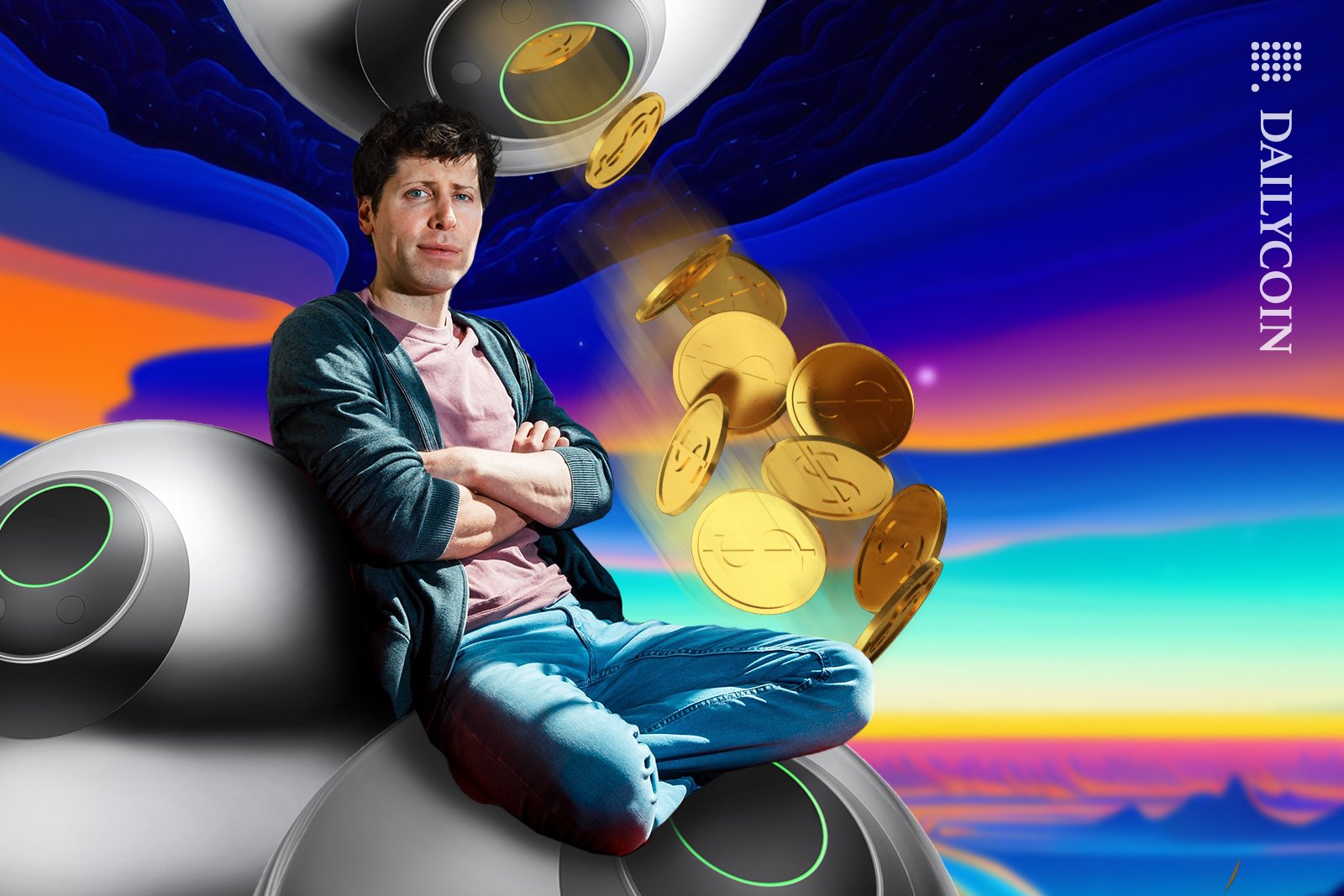
- Worldcoin is reportedly securing $100 million in funding.
- Co-founder Sam Altman of OpenAI says Worldcoin could power UBI infrastructure.
- Critics argue the iris scanning tech poses serious privacy concerns.
Sam Altman’s OpenAI has stunned the world with its ChatGPT, demonstrating just how powerful artificial intelligence (AI) can be. Altman’s crypto venture, Worldcoin, is raising money to tackle the problems of an AI-dominated future.
Worldcoin aims to introduce a unique proof of humanity through an iris-scanning process, an idea that is as ambitious as controversial. Its current CEO even says it could play a role in universal basic income (UBI) once AI takes over most jobs.
After reportedly being close to securing $100 million in funding on Monday, May 15, Worldcoin is one step closer to full launch. However, its eye-scanning technology is raising eyebrows among privacy advocates.
Worldcoin and ‘Proof of Humanity’
In a world of advanced AI and deep fakes, it is ever harder to distinguish between people and machines. As artificial intelligence continues to disrupt society, Altman sees Worldcoin as crucial in managing these changes.
Sponsored
Worldcoin aims to provide verifiable proof of humanity using iris scanning technology. Powering this initiative is a device called ‘the Orb,’ which scans a person’s iris. The device then turns the scan into a short numeric code, or a hash, which is unique to each individual, and serves as their ‘proof of humanity.’
The project aims to entice people to give away their biometric information by offering free Worldcoin tokens. By providing it to every person on Earth, Worldcoin seeks to achieve an “equitable distribution” of the token. It is worth noting that the token is not yet in public sale and has no market value.
Sponsored
On the other hand, Worldcoin’s technology could have multiple applications. For one, it could enable applications to verify whether their users are real humans. This would, for instance, be useful for spam mitigation and help tackle the bot problem on social media. But that’s far from all of its uses.
Worldcoin and the UBI Dream
In 2021, Worldcoin CEO Alex Blania suggested another use for Worldcoin as infrastructure for distributing universal basic income (UBI). The system enables all citizens to receive an unconditional sum apart from any income received elsewhere.
This concept is grounded in the idea of a future where UBI becomes a necessity rather than an option. As AI and automation technologies continue to advance, they threaten to displace human workers in various fields. In such a scenario, a UBI could ensure a basic standard of living.
The idea isn’t to turn Worldcoin itself into a form of UBI, but rather to use it as a vehicle for fair and equitable UBI distribution. Through the unique iris-scanning protocol, Worldcoin can verify unique human identities. This could enable it to prevent fraud in a UBI system.
“I’m personally very excited about UBI over the long term,” Blania said. “I think it’s a very hard thing to implement right now.”
On the other hand, Silicone Valley investors seem excited about the potential of Worldcoin as a business. Despite being in beta, and having no revenues, the project has secured funding at a staggering $3 billion valuation.
Despite lofty goals like UBI, investors see Worldcoin as a potentially massively profitable business. However, not everyone is on-board.
Worldcoin: UBI or Dystopia?
Worldcoin is not without its critics. Edward Snowden, the former National Security Agency (NSA) contractor known for exposing the agency’s mass surveillance program, is one of them.
The pro-privacy advocate questioned the project’s use of biometric data due to concerns potential for misuse. For one, technology that can identify users on biometric data has dark implications.
Worldcoin acknowledges as much in a 2023 blog post. Using biometric technology as a “means of personal identification can spark thoughts of a dystopian or authoritarian future,” the blog post suggests.
“Unfortunately, there are systems that misuse biometrics to limit personal freedom, and we strongly oppose such systems,” the blog post explains.
Others have criticized the idea of offering monetary compensation for surrendering biometric data. According to investor Adam Cochran, this approach targets the most desperate in a society, lured with the promise of free money.
According to Worldcoin, the organization does not normally save individual iris scans of users. They only save some scans to improve their algorithm and only from users that opt-in.

Instead, they save a hash of the scan, enabling them to recognize future biometric scans from the same person. However, these scans constitute identifiable information about the user, also Worldcoin’s main selling point.
On the Flipside
- Worldcoin’s team says it opposes systems that use biometrics to limit freedom. However, there is no guarantee that the data they collect may not be used in authoritarian ways or that the team may be enticed or compelled to surrender it to a third party.
- Some of the concerns from critics have already materialized. Specifically, concerns relating to data security. On May 12, hackers stole passwords from multiple Worldcoin Orb operators.
Why You Should Care
Worldcoin aims to tackle the issues of a future where AI is dominant. At the same time, it is sparking a debate over some of the fundamental values of crypto, including privacy, decentralization, and censorship resistance.
Read more about Worldcoin’s launch plans:
ChatGPT Going Crypto? OpenAI CEO to Deploy Worldcoin
Read more about how UK gambling rules affect crypto:
